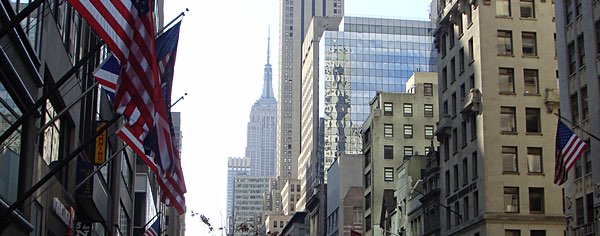- By New York State Comptroller's Office
- Business & Technology
 Print
Print 
New York City, New York state and the Metropolitan Transportation Authority all need additional federal aid to mitigate the impact of the COVID-19 pandemic on their budgets and a failure to aid one could adversely affect the others, according to a review of the city's financial plan released today by New York State Comptroller Thomas P. DiNapoli.
"The social, economic and budgetary impacts of the pandemic have been unprecedented on New York City, the state and the nation," DiNapoli said. "Without additional federal budget relief, the City will need to make hard choices to ensure budget balance in the current fiscal year and to close next year's budget gap."
More than 944,000 jobs were lost in March and April, the largest job loss since the Great Depression. The unemployment rate, which had fallen to a record low of 3.4 percent in February 2020, shot up to 20.4 percent in June, the highest level in 44 years. The loss represented one-fifth of the jobs in the city and erased nearly all of the gains over the past ten years.
In June, the city projected a two-year revenue loss of $9.6 billion from the COVID-19 pandemic. To offset the loss and to address its other needs, the city freed up $11.4 billion in resources. Nearly $4.1 billion came from reserves, including $2.6 billion from the Retiree Health Benefits Trust. The city also reduced the general reserve for FY 2021 from $1 billion to $100 million, the statutory minimum for the start of the fiscal year.
Despite a balanced budget in the current fiscal year, the city projects a budget gap of $4.2 billion for FY 2022 because it relied heavily on nonrecurring actions to balance this year's budget. In addition, the city's four-year financial plan includes sizable risks. The Office of the State Comptroller has quantified risks of $1.8 billion in the current fiscal year and more than $2.3 billion in subsequent years, which could increase next year's budget gap to $6.5 billion.
The largest risk is the expectation of $1 billion in recurring labor savings. While the city reduced the budget for police overtime by $350 million in the current fiscal year, it has not yet presented a plan to realize the savings. It also remains to be seen whether the city's revenue forecasts are sufficiently conservative given the uncertainties surrounding the pandemic and the city's recovery. The city expects a strong rebound next year but the recovery may be slower than anticipated.
In addition, the Governor has indicated actions will be needed to close a $13.3 billion gap in the state's budget without increased federal aid, including an $8.2 billion largely recurring reduction in aid to localities. This would likely have a significant impact on the city's budget and its residents.
The Metropolitan Transportation Authority, which is vital to the regional economy, faces an unprecedented financial crisis. Although it has received $4 billion in federal aid, it still projects a budget gap of $9 billion over this year and next. Even with additional federal aid and returning ridership, the MTA will still need to make difficult decisions to balance its budget.
Congress is currently debating the size and content of another COVID-19 relief bill, but the outcome is uncertain.
v16i32




